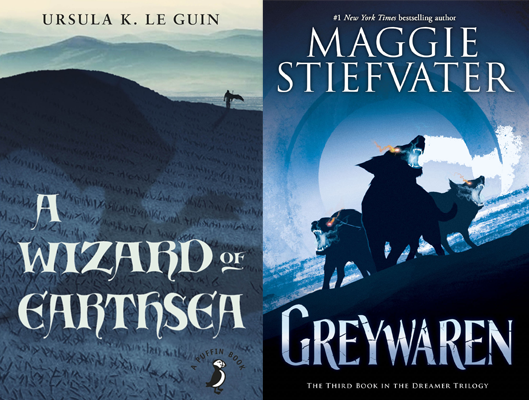I want to take some time to write about magic in books, because magic is everywhere, and yet it is nowhere.
I want to write about magic, because it is undescribable, and yet every reader of fantasy books knows exactly what they would like their magic to look and feel like.
And I want to write about magic because sometimes, sometimes, I do feel the need to experience some of it in my day to day life.
I've been reading a few fantasy books recently. They range from high or epic fantasy to classical sword & sorcery, from Chinese Wuxia novels to urban fantasy. By reading, I only mean reading bits; I do not finish every book that I start, and at 29 I'm starting to feel okay with that.
I've always been a reader of fantasy, but I've never read fantasy consistently in my adult life. In my mid-to-late twenties I hopped from literary fiction to upmarket fiction, keeping an eye out for speculative elements, but I was not deeply entrenched in what fantasy has to offer, even when I was most interested in its intricacies and elements. Why?
I may have a few reasons for this. The first one is that fantasy is an expansive genre, and it is hard to find a book that is not the first in a series, or that's just quite short (is this a stereotype? Maybe, but there is some truth to it). My attention span is getting worse and worse by the minute, so I tend to prefere short, electric novels rather than big sprawling series (there are some exceptions, but I rarely start reading serialised works).
The second reason is that, although I love immersing myself in colourful, magic-filled worlds, the magic isn't always to my taste. Some books use too much of it, some use too little. Some books have complex magic systems, and some just a pale suggestion of anything out of the ordinary. Magic, for me, has to be quite right, and the type of magic that satisfied me as a kid (let's say, Harry Potter) doesn't do anything for me as an adult.
I have, however, discovered what sort of magic I like: it has to be almost unspoken, quaint, but able to move and surprise readers. It has to be felt (both by the characters and the readers). And it has to have gaps.
One thing people often teach new writers is that the author has to know their story inside and out; if there is a magic system, it has to be thought of perfectly to the smallest detail. Although I don't disagree with the sentiment, I also feel like, more often than not, this doesn't leave space for creative gaps. A creative gap is something that hides curiosity, interest and mystery behind the lack of an explanation. A magic system can feel fairly vague, and yet it is that vagueness, that nebulous quality, that gives the reader the chance to truly experience it. Would you be scared of something you already know? Curious about something you already understand?

This year, I've read two books that truly exemplify this concept. A Wizard of Earthsea by Ursula K. Le Guin doesn't explain the way magic works to the reader, even though its protagonist is dutifully studying it throught most of the novel. And yet, it feels magical because it is not explained; because if it were to be explained, it would start feeling like a science; and why should we apply the same logic to something that (ideally) defies everything we know?
The second book I would like to mention is Greywaren by Maggie Stiefvater. This is the last book in a series (see? an exception to my reading habits) that finally explains a long-theorised about element of the lore. The main character is a Greywaren, and readers have never known what a Greywaren actually is. The explanation feels earned, not only because it was years in the making (you gotta keep those readers waiting for the right moment to strike), but also because it doesn't explain everything. There's still a world of mystery behind it, in a metaphorical and literal sense. What it does explain is grand and scary and full of wonder, leaving readers wondering what could possibly exist beyond that.
When I read Greywaren, I felt overcome by a feeling of sheer possibility. In that moment, that explanation, that magic, did not close a chapter: it opened several doors. And I don't even need the author to reveal what's behind them: I can take a peek just with my imagination, whenever I want. I don't need to know every detail; I need to know that the author has left some space for me to wander and reap the magic myself.